
Laura Sanders reports on neuroscience for Science News. She wrote Growth Curve, a blog about the science of raising kids, from 2013 to 2019 and continues to write about child development and parenting from time to time. She earned her Ph.D. in molecular biology from the University of Southern California in Los Angeles, where she studied the nerve cells that compel a fruit fly to perform a dazzling mating dance. Convinced that she was missing some exciting science somewhere, Laura turned her eye toward writing about brains in all shapes and forms. She holds undergraduate degrees in creative writing and biology from Vanderbilt University in Nashville, where she was a National Merit Scholar. Growth Curve, her 2012 series on consciousness and her 2013 article on the dearth of psychiatric drugs have received awards recognizing editorial excellence.

Trustworthy journalism comes at a price.
Scientists and journalists share a core belief in questioning, observing and verifying to reach the truth. Science News reports on crucial research and discovery across science disciplines. We need your financial support to make it happen – every contribution makes a difference.
All Stories by Laura Sanders
-
 Neuroscience
NeuroscienceRat cells grew in mice brains, and helped sniff out cookies
When implanted into mouse embryos, stem cells from rats grew into forebrains and structures that handle smells.
-
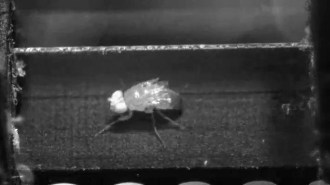 Neuroscience
NeuroscienceTiny treadmills show how fruit flies walk
A method to force fruit flies to move shows the insects’ stepping behavior and holds clues to other animals’ brains and movement.
-
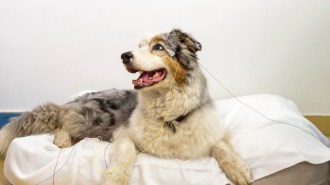 Neuroscience
NeuroscienceDogs know words for their favorite toys
The brain activity of dogs that were expecting one toy but were shown another suggests canines create mental concepts of everyday objects.
-
 Artificial Intelligence
Artificial IntelligenceHow do babies learn words? An AI experiment may hold clues
Using relatively little data, audio and video taken from a baby’s perspective, an AI program learned the names of objects the baby encountered.
-
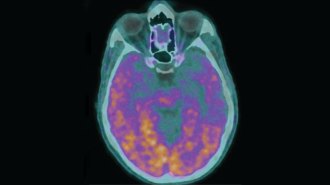 Health & Medicine
Health & MedicineUnder very rare conditions, Alzheimer’s disease may be transmitted
Alzheimer’s isn’t contagious. But contaminated growth hormone injections caused early-onset Alzheimer’s in some recipients, a new study suggests.
-
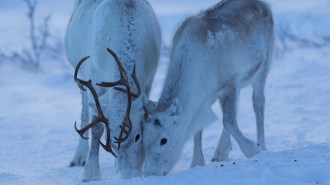 Animals
AnimalsReindeer can sleep while they chew
Brain waves and behaviors suggest that reindeer can doze while chewing, a timesaving strategy for sleeping under tough conditions.
-
 Neuroscience
NeuroscienceBrain scans give clues to how teens handle pandemic stress
A study that followed hundreds of teenagers during the COVID-19 pandemic may explain why some people succumb to stress while others are more resilient.
-
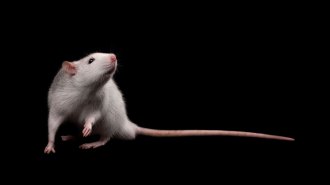 Neuroscience
NeuroscienceIn a Jedi-like feat, rats can move a digital object using just their brain
In a new study, rats could imagine their way through a 3-D virtual world, hinting at how brains can think about places that they’re not physically in.
-
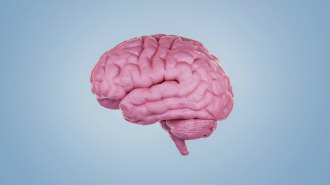 Neuroscience
NeuroscienceWhat a look at more than 3,000 kinds of cells in the human brain tells us
A wide-reaching look at the cells that build the brain, detailed in 21 studies, showcases the brain’s cellular diversity and clues about how it works.
-
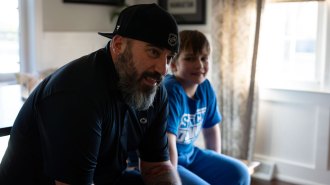 Health & Medicine
Health & MedicineHow brain implants are treating depression
This six-part series follows people whose lives have been changed by an experimental treatment called deep brain stimulation.
-
 Neuroscience
NeuroscienceToday’s depression treatments don’t help everyone
In the second story in the series, deep brain stimulation is a last resort for some people with depression.
-
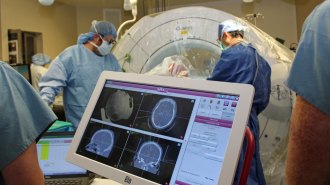 Health & Medicine
Health & MedicineThe science behind deep brain stimulation for depression
The third part of the series explores the promising brain areas to target for deep brain stimulation for depression.